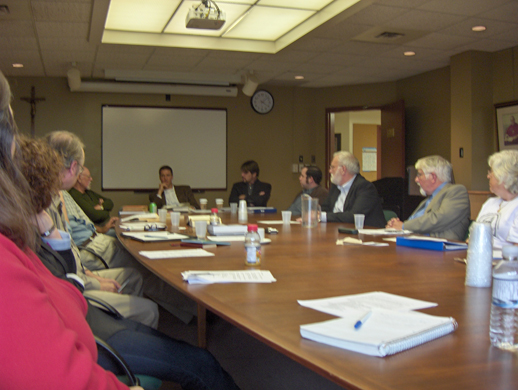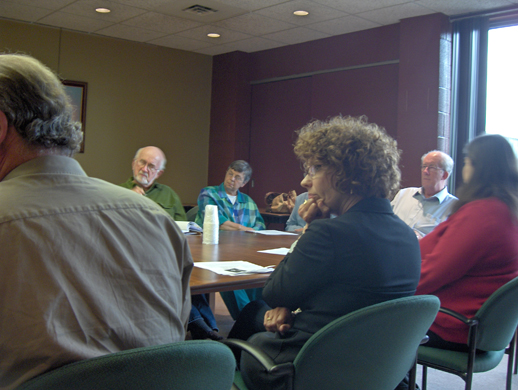In a recent article, “The New Divide: Romantic versus Classical Orthodoxy,” Modern Theology 26 (2010), the Anglican theologian John Milbank, has identified a new divide between “romantic” and “classical” orthodoxy, one which replaces the older divide between theological orthodoxy and liberalism. Romantic orthodoxy affirms a link between reason and eros and opposes strict rationalism, while classical orthodoxy locates in a particular reading of Thomas a proper use of reason and a scholastic legacy. The difference between them, claims Milbank, is a difference in the understanding of the relationship between nature and grace. Classical orthodoxy, while arguing for the power of reason to supply proof of the existence of God and the plausibility of revelation, simultaneously confesses its own inadequacy and embraces “the completely supernatural content of the act of faith” (Milbank 29). Fideism accompanies rationalism. For proponents of romantic orthodoxy, however, “critical mediation” between the realms of nature and grace plays a crucial role. Reason itself descends, restoring and exalting damaged human reasoning processes. This reason is the Incarnation, while the words of the Bible “anticipate, echo, enforce and again anticipate the epiphanic descent of reason itself to humanity” (Milbank 30). Continue reading
-
Recent Posts
- The Presence of Mystery: Structures of Paradox in Hans Urs von Balthasar
- The Divine Project
- A Conversation on the Council of Nicaea
- Fitted for a Purpose: The Problem of Biological Fitness and an Aristotelian-Thomistic Solution
- A Blood Transfusion for Theology: Pope Francis’s c’est la confiance, Thérèse, and Teresa
Recent Comments
- Norm Klassen on Monochromatic Heterodoxy
- David Anderson on Monochromatic Heterodoxy
- Norm Klassen on Monochromatic Heterodoxy
- Jonathan Haidt on Monochromatic Heterodoxy
- Sr. Bernadette on A Proposal from the Communio Circle of the Diocese of Hamilton to the Hamilton Atheists
Archives
- June 2025
- April 2025
- March 2025
- February 2025
- January 2025
- December 2024
- October 2024
- September 2024
- August 2024
- July 2024
- June 2024
- May 2024
- April 2024
- March 2024
- February 2024
- January 2024
- December 2023
- November 2023
- October 2023
- September 2023
- August 2023
- July 2023
- June 2023
- April 2023
- March 2023
- February 2023
- January 2023
- December 2022
- November 2022
- October 2022
- September 2022
- August 2022
- July 2022
- June 2022
- May 2022
- April 2022
- March 2022
- February 2022
- January 2022
- December 2021
- November 2021
- October 2021
- September 2021
- August 2021
- June 2021
- April 2021
- March 2021
- February 2021
- January 2021
- November 2020
- September 2020
- August 2020
- June 2020
- May 2020
- April 2020
- February 2020
- January 2020
- December 2019
- November 2019
- October 2019
- September 2019
- August 2019
- July 2019
- May 2019
- March 2019
- February 2019
- January 2019
- November 2018
- October 2018
- September 2018
- August 2018
- July 2018
- June 2018
- May 2018
- April 2018
- February 2018
- January 2018
- December 2017
- November 2017
- October 2017
- September 2017
- August 2017
- July 2017
- June 2017
- May 2017
- April 2017
- March 2017
- February 2017
- January 2017
- December 2016
- November 2016
- October 2016
- September 2016
- August 2016
- July 2016
- June 2016
- May 2016
- April 2016
- March 2016
- February 2016
- January 2016
- December 2015
- November 2015
- October 2015
- September 2015
- August 2015
- July 2015
- June 2015
- May 2015
- April 2015
- March 2015
- February 2015
- January 2015
- December 2014
- October 2014
- September 2014
- August 2014
- July 2014
- June 2014
- May 2014
- April 2014
- March 2014
- February 2014
- January 2014
- December 2013
- November 2013
- October 2013
- September 2013
- August 2013
- July 2013
- June 2013
- May 2013
- April 2013
- March 2013
- February 2013
- January 2013
- December 2012
- November 2012
- October 2012
- September 2012
- August 2012
- July 2012
- June 2012
- May 2012
- April 2012
- March 2012
- February 2012
- January 2012
- December 2011
- November 2011
- October 2011
- September 2011
- August 2011
- July 2011
- June 2011
- May 2011
- April 2011
- March 2011
- February 2011
- January 2011
- December 2010
- November 2010
- September 2010
- August 2010
Categories
Links
Meta


